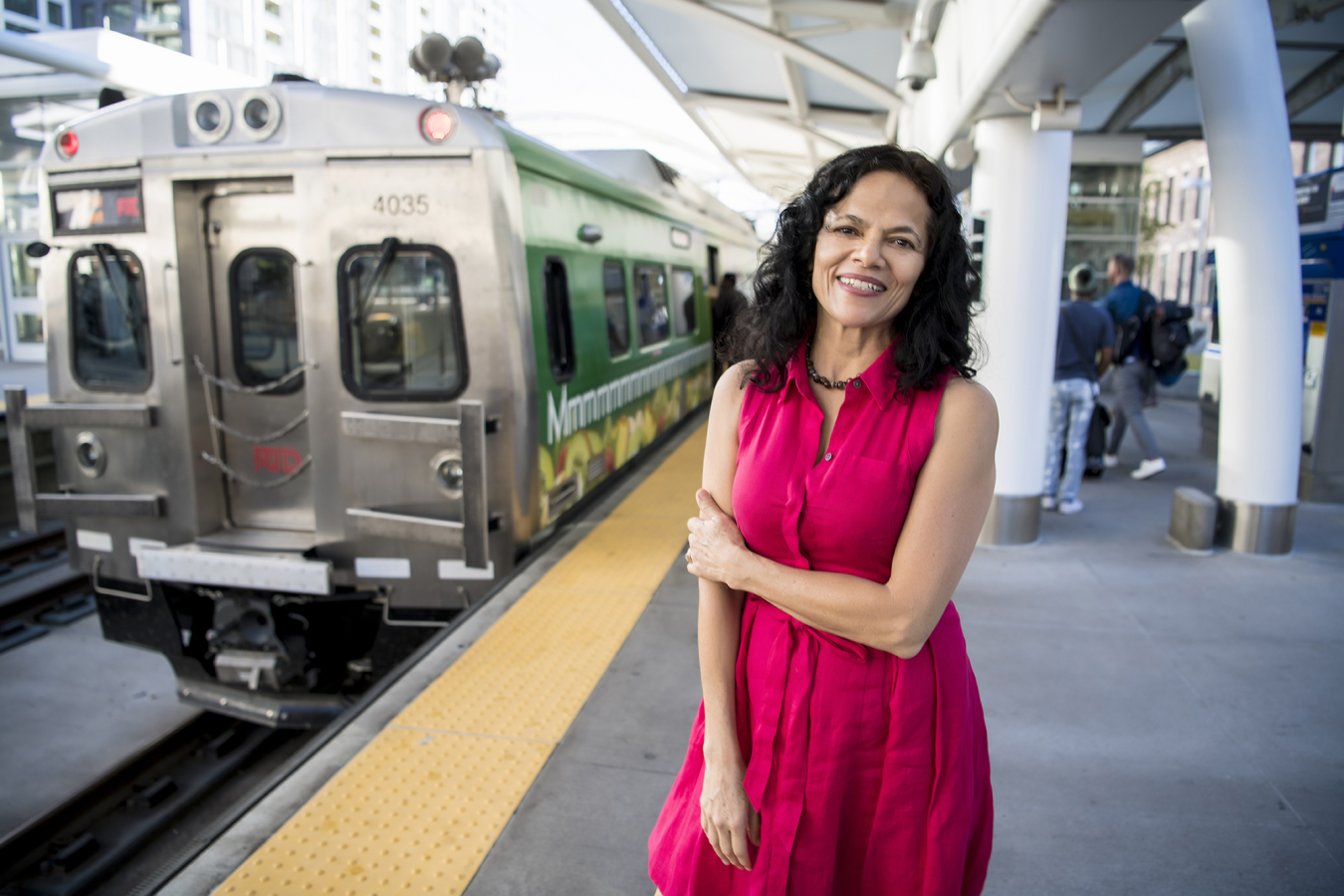Learn why Romero-Lankao loves her job as a distinguished researcher at DOE's National Renewable Energy Laboratory in the Center for Integrated Mobility Sciences.
May 23, 2022
Patricia (Paty) Romero-Lankao joined DOE's National Renewable Energy Laboratory (NREL)’s Center for Integrated Mobility Sciences in July of 2018 as a senior research scientist, and recently became a distinguished researcher. Before joining NREL, Romero-Lanko was a senior scientist at the National Center for Atmospheric Research. She has two PhDs (one in urban studies and the other in rural issues), and extensive experience as a sociologist working across disciplines, agencies, and laboratories and at the science-policy interface. Over the past two decades, her research and development work in the U.S. and internationally has focused on developing tools and methods to creating innovative pathways to clean, resilient, and inclusive energy and water systems, while fostering diverse stakeholder capacities to adapt to and mitigate climate risks.
What inspired you to work in STEM?
Technical innovations such as solar panels, electric vehicles, and intelligent data management systems are often seen by STEM scholars as solutions that will benefit society as a whole, while transforming the U.S. energy system. However, in my research I found that some communities see these technological innovations as incompatible with their socioeconomic, cultural, and environmental realities. Moreover, innovations can sometimes disproportionately reinforce the health and economic burdens of some groups while benefitting others, and thus serve to increase inequality and injustice.
My goal when engaging with STEM colleagues is to demonstrate the value of early-stage involvement of social science experts in examining the community realities and needs those emerging technologies seek to address for innovators to transform their energy systems in more equitable, inclusive, and sustainable ways.
What excites you about your work at the Energy Department?
I am thrilled by the idea of complementing the national labs’ capabilities with innovative mixed-methods aimed to examine the ways people adopt, or fail to adopt, climate and energy solutions and how this, in turn, unequally affects both sustainability and resilience. I love to be part of and lead research projects, and transdisciplinary groups ranging from international and national to city, and community based.
In this work, I like to pay attention to all aspects of multi-stakeholder, multi-country research projects. Many of these efforts have often started with a disarrayed collection of ideas from diverse scholars and stakeholders, but I enjoy finding ways to speak to different disciplines and ways of knowing to create innovative, inclusive, and cohesive energy and sustainable solutions.
How can our country engage more women, girls, and other underrepresented groups in STEM?
Many STEM women, communities of color and other underrepresented groups are well prepared to enter the professional workforce but choose not to, or are excluded, due to persistent barriers to entry or advancement within organizations. Such barriers include implicit biases that are not broken by a focus on the individual behavior of underrepresented groups alone. Therefore, I suggest investing financial and human resources in programs fostering inclusion of women, minority, and underrepresented groups in high-level positions as well as in hiring and evaluation committees, and capacity building programs.
Do you have tips you'd recommend for someone looking to enter your field of work?
My main recommendation to any young scholar is to do what they are passionate about. Only in this way, will they be able to overcome obstacles, deal with frustrations, and take advantage of research, personal development, and networking opportunities.
When you have free time, what are your hobbies?
I love the outdoors. I try to open time during the day to run, hike or bike. I also love to play the piano, as it allows me to express my emotions and transport my mind to different places. Piano also helps me exploring feelings and ideas, and I like to share my piano pieces with family and friends twice a year, at the summer and winter recitals convened by my piano teacher.
Learn more about our programs & resources for women and girls in STEM and see more profiles at our STEM Rising Women @ Energy page.

